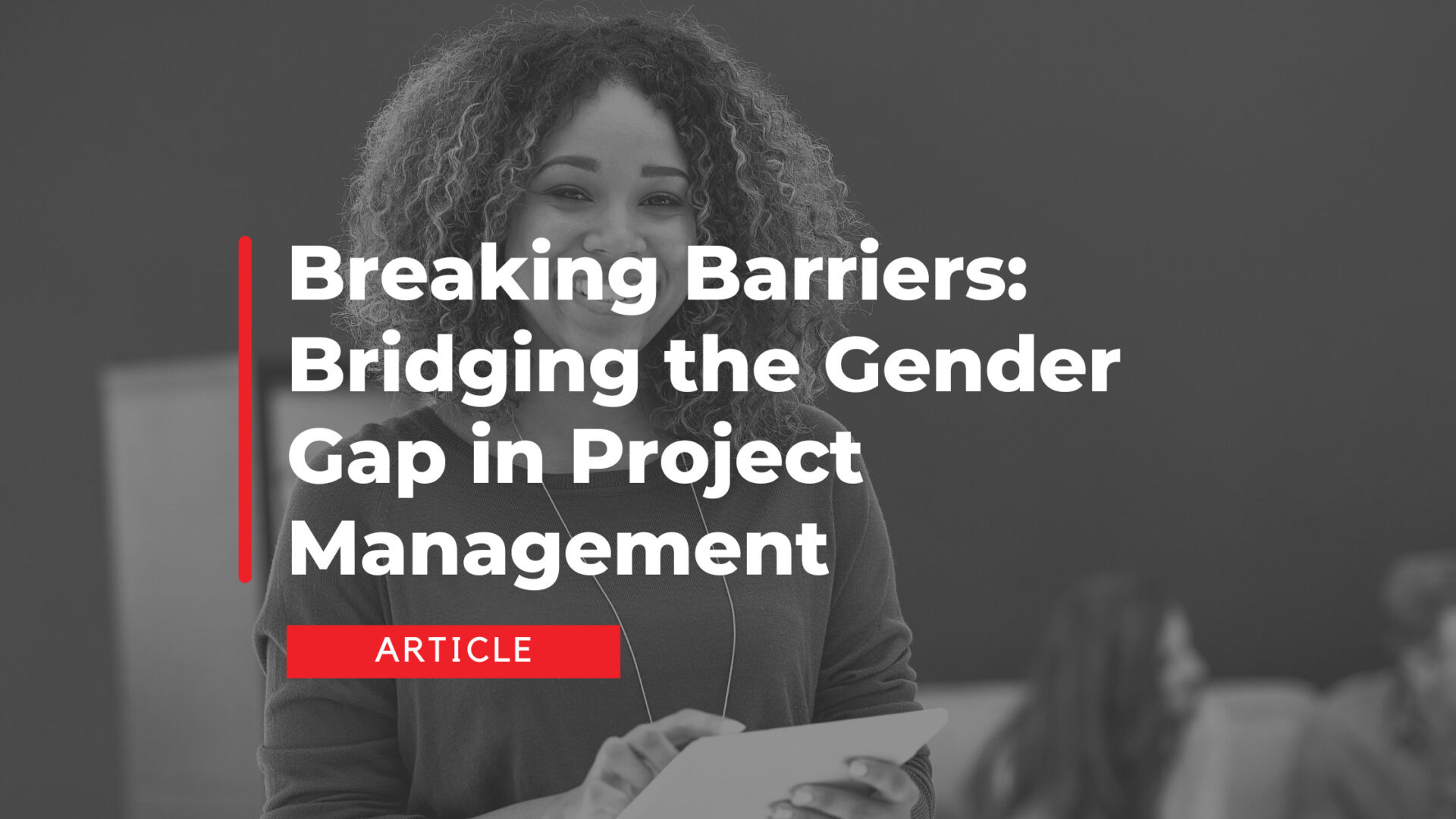
Breaking Barriers: Bridging the Gender Gap in Project Management
It’s disheartening to observe that women continue to have significantly fewer jobs than men. This is despite global equality movements and workplace DE&I initiatives to bridge the gender gap.
The Global Megatrends 2022 report reveals the glaring disparities that persist despite collective efforts. According to the International Labour Organisation (ILO), the global labour force participation rate for women stands at just under 47%, while men’s participation soars to 72%. This gender gap extends its shadow to the field of project management, where male project managers outnumber their female counterparts by a staggering 3:1, as reported by the Project Management Institute (PMI).
While the gender gap in project management has immediate negative implications for project teams, where 88% of professionals agree that diversity enhances value, it also holds the key to addressing a broader organisational crisis. The COVID-19 pandemic-induced global labour disruptions continue to impact employment, resulting in a growing demand for project management-oriented roles. PMI’s research predicts that by 2030, the world will need an additional 25 million project professionals.
To gain a deeper understanding of the current state of women in project management and the opportunities that exist for both female workers and organisations, PMI analysed data from over 1,900 female project professionals who responded to the PMI Annual Global Survey on Project Management in 2022.
PMI’s global snapshot shows:
- Global gender disparity in project management: Male project managers outnumber females, regardless of region or industry.
- Gender pay gap: Women in project management tend to earn less than men and have lower certification and degree attainment.
- Leadership roles: Despite lower representation, women in project management are only slightly less likely to hold leadership positions.
- Work approaches and technology: Women are more likely to use agile and hybrid methodologies, work in tech-savvy organizations, and emphasize power skills in their roles.
Regional and Industry Differences:
The gender gap in project management is universal, with male project professionals outnumbering females in every region. However, disparities are most pronounced in the Middle East, North Africa, Asia Pacific, and South Asia, whereas gaps are narrower in North America, sub-Saharan Africa, and China.
Similarly, gender disparities exist across all industries, but some sectors exhibit more significant imbalances. In industries like construction, transportation/logistics, energy, aerospace, manufacturing, automotive, information technology, telecom, and consulting, male project managers outnumber females by more than 50%. Healthcare is a notable exception, where the gap is less than 20%.
Key Takeaways and Next Steps:
A diverse workforce fosters productivity, employee satisfaction, and positive organisational outcomes. Organisations should consider the following steps to address these disparities:
- Evaluate and Address Employment and Salary Disparities: Examine employment and salary disparities for female project managers in organisations. Collaborate with human resources to increase equity.
- Support Certification: Encourage and support female project managers in obtaining project management certifications.
- DE&I Initiatives: Work through internal DE&I initiatives to recruit and retain more female project managers. Consider women with relevant work experience who can be up-skilled into project management roles.
- Leadership Training: Provide leadership training for female project managers. Demonstrating female leadership within the organisation can be a valuable recruiting tool.
Women project professionals can also take a proactive role in their careers. Pursuing certifications can enhance their profiles and earning potential. Additionally, joining or forming networks focused on supporting female project professionals can aid in identifying opportunities, fostering learning and development, and collectively addressing the disparities they face.
In the path to a more equitable future, collaboration and deliberate actions are essential to bridge the gender gap in project management and create a diverse, inclusive, and prosperous working environment for all.



